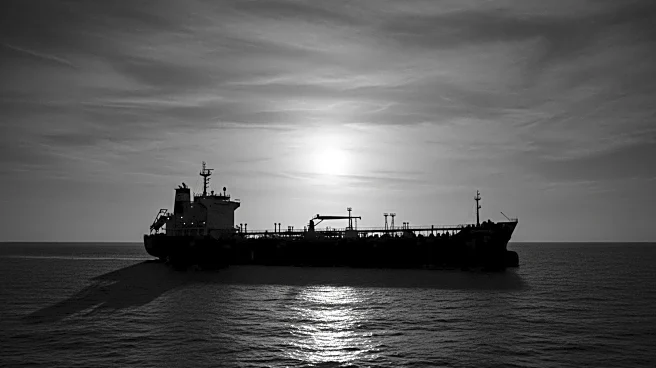What's Happening?
French authorities are currently investigating a shadow tanker, identified as the Boracay, which is anchored off Saint-Nazaire. The vessel, built in 2007, has been under scrutiny for failing to provide proof of nationality and not complying with orders. Previously detained by Estonian authorities, the tanker was found to have 40 deficiencies, primarily related to documentation and crew training. The vessel, which has been part of the shadow fleet since November 2022, has undergone multiple identity changes, including names and flags. It was sanctioned by the UK in October 2024 and by the EU in February 2025 for its involvement in the Russian oil trade. French prosecutors in Brest are reviewing information from the French Navy as part of the ongoing investigation.
Why It's Important?
The investigation into the Boracay highlights the challenges of regulating maritime activities, especially concerning vessels involved in shadow fleet operations. These operations often involve frequent changes in vessel identity to evade sanctions and regulatory oversight. The scrutiny by French authorities underscores the broader European efforts to enforce compliance with maritime laws, particularly in the context of sanctions against Russian oil trade. The outcome of this investigation could have significant implications for international maritime regulations and the enforcement of sanctions, affecting global shipping practices and the oil trade.
What's Next?
As the investigation proceeds, French authorities may impose further sanctions or penalties on the vessel if violations are confirmed. The case could prompt other European nations to enhance their maritime monitoring and enforcement strategies. Additionally, the findings could lead to stricter international regulations on vessel registration and documentation to prevent similar incidents. The maritime industry and international regulatory bodies will likely be closely monitoring the developments in this case.
Beyond the Headlines
The case of the Boracay sheds light on the complexities of maritime law enforcement and the tactics used by vessels to circumvent regulations. It raises questions about the effectiveness of current international maritime laws and the need for more robust mechanisms to track and regulate vessels involved in illicit activities. The situation also highlights the geopolitical dimensions of maritime trade, particularly in relation to sanctions and international relations.









